English original here [2]
L’Occident et ses peuples peuvent-ils être sauvés ? Et que faudra-t-il pour cela – en particulier si nous recherchons une solution à long terme plutôt qu’une dernière digue « provisoire » ? Une nouvelle Haute Culture de l’Occident peut-elle naître pour assurer l’existence des peuples de l’Occident pour une longue durée ? Quelles caractéristiques une telle nouvelle culture devrait-elle posséder ?
Je supposerai que le lecteur connaît le the modèle civilisationnel d’Oswald Spengler [3], un modèle en grande partie adopté par Francis Parker Yockey dans ses divers travaux sur l’Occident et ses possibilités futures. Avec un Printemps, un Eté, un Automne et un Hiver dans une Haute Culture, l’« Hiver » est la phase de la fin imminente. Il est clair, du moins pour moi (et il semble que Michael O’Meara soit d’accord avec cette évaluation), que nous sommes dans l’« Hiver » de notre Haute Culture Occidentale (c’est-à-dire « faustienne ») moderne actuelle. Et, immergée dans ce déclin, privée d’un principe organisateur dominant qui puisse fournir une structure spirituelle permettant la continuation de son existence, la race blanche est en train de mourir, ne parvient plus à se reproduire, est remplacée par des étrangers, et oppose un degré de résistance inapproprié à la mort de l’Occident.

Dans les véritables saisons du climat physique, le printemps suit l’hiver. La même chose peut-elle être vraie pour des peuples particuliers et leurs Hautes Cultures ? Si la volonté de (re)-naissance civilisationnelle conduit à la survie raciale à long terme, devrions-nous au moins examiner les possibilités ? Bien sûr, on ne peut pas prédire avec une entière exactitude si une (re)-naissance civilisationnelle aura lieu, et encore moins la forme précise qu’un tel événement prendra. De plus, on ne peut pas planifier à l’avance et créer une Haute Culture de la même manière qu’on établit la formulation générale d’une stratégie et qu’on conduit ensuite les troupes à la bataille. Une Haute Culture doit se développer selon ses propres lois, d’après des facteurs qui ne sont pas entièrement sous contrôle humain (conscient). Cependant, on peut et on doit examiner les données, envisager les possibilités, et, dans la mesure du possible, encourager les tendances conduisant à une (re)-naissance civilisationnelle. De plus, ces tendances pourraient et devraient être guidées, dans la mesure du possible, dans des directions qui seraient plus fructueuses et plus cohérentes avec la nature de notre peuple.
Un point de départ est d’examiner notre Haute Culture actuelle, dont nous voyons les vestiges mourant autour de nous. La dénommée civilisation « occidentale » ou « faustienne » a été décrite par Spengler, et est résumée ainsi [4]:
« …les Occidentaux [5] modernes étant faustiens [6]. D’après ses théories, nous vivons maintenant dans l’hiver de la civilisation [7] faustienne. Sa description de la civilisation faustienne est celle d’une civilisation où la masse recherche constamment l’inaccessible – faisant de l’Homme Occidental une figure fière mais tragique, car tout en luttant et en créant il sait secrètement que le but réel ne sera jamais atteint. »
Ici nous voyons deux caractéristiques définissantes de la civilisation « faustienne » de l’Occident moderne (c’est-à-dire post-antique) : d’abord, un accent placé sur l’infini et l’inconnu, et ensuite que l’effort dirigé vers cela sera toujours infructueux ; les objectifs de l’Occidental sont toujours « inaccessibles ». Le second point et ses implications seront discutés plus loin. Pour l’instant, acceptons le modèle spenglérien et acceptons aussi que nous sommes dans l’Hiver de la culture faustienne. Or l’école spenglérienne, imbue d’« acceptation stoïque » (de « pessimisme »), nous conseillera d’accepter nos circonstances et d’en tirer le meilleur parti. L’ère dans laquelle nous vivons est ce qu’elle est, et, comme le soldat romain montant la garde sous le Vésuve en éruption, nous devons rester à notre poste jusqu’à la fin, jusqu’à ce que tout soit submergé par le déclin inévitable (l’entropie civilisationnelle, si vous préférez).
Mais si la race et la culture sont liées, la disparition de la culture signifie la destruction de la race. Mais est-ce vrai ? La Culture Faustienne n’est pas la première Haute Culture de l’Europe ; elle fut précédée par la Culture Antique. Spengler et son adepte Yockey rompent avec les interprétations culturelles précédentes pour souligner la forte discontinuité entre cultures antique et faustienne. Elles sont perçues comme deux Hautes Cultures distinctes, aussi différentes l’une de l’autre que, disons, la culture égyptienne et la culture « magique ».
Par conséquent, dans le même article sur l’œuvre de Spengler, nous lisons:
Spengler emprunte fréquemment à la philosophie mathématique. Il affirme que les mathématiques [8]et l’art d’une civilisation révèlent sa vision-du-monde. Il note que dans les mathématiques antiques grecques il y a seulement des entiers [9] et pas de véritables concepts des limites [10] ou de l’infini [11]. Par conséquent, sans le concept de l’infini, tous les événements du passé lointain étaient vus comme également lointains, et ainsi Alexandre le Grand [12] n’avait aucune gêne à se déclarer descendant d’un dieu. D’autre part, le monde occidental – qui a des concepts du zéro [13], de l’infini, et de la limite – possède une vision-du-monde historique qui accorde une grande importance aux dates exactes.
De même, Revilo Oliver écrit [14] :
« Spengler identifie comme deux civilisations entièrement séparées et distinctes la civilisation antique (‘apollinienne’), entre 1100 av. J.C. et 300 apr. J.C., et la civilisation occidentale (‘faustienne’), entre 900 et 2200 apr. J.C. Ce sont les deux pour lesquelles nous avons l’information la plus complète, et entre elles Spengler établit quelques-uns de ses plus brillants synchronismes (par ex., Alexandre le Grand correspond à Napoléon). Même un siècle plus tôt, cette dichotomie aurait semblé presque folle, car chacun savait et prenait comme allant de soi que quoi qu’il puisse en être des cultures étrangères, la nôtre était une continuation, ou du moins un renouveau, de l’antique. Le rejet par Spengler de cette continuité était l’aspect le plus radical et le plus étonnant de sa synthèse historique, mais son influence écrasante a été si grande que cet aspect a été accepté par une majorité des nombreux auteurs ultérieurs sur la philosophie de l’histoire, dont nous pouvons mentionner ici seulement Toynbee, Raven, Bagby et Brown (20). L’antique, nous dit-on, était une civilisation comme les Egyptiens, maintenant morte et enterrée et sans lien organique avec la nôtre. (…)
Spengler (que Brown suit particulièrement à cet égard) appuie sa dichotomie drastique en opposant d’une manière impressionnante les mathématiques et la technologie gréco-romaines aux nôtres ; à partir de cette opposition, il déduit des différences dans la perception de l’espace et du temps, manifestées particulièrement dans la musique, et parvient à la conclusion que la Weltanschauung antique était essentiellement statique, ne désirant et ne reconnaissant qu’un monde strictement délimité et familier, alors que la nôtre est dynamique et manifeste un désir passionné pour l’infini et l’inconnu. On peut avancer diverses objections aux généralisations que j’ai si brièvement et inadéquatement résumées (par ex., la différence de vision est-elle réellement plus grande qu’entre la littérature ‘classique’ de l’Europe du XVIIIe siècle et le romantisme de l’ère suivante ?), mais le point crucial est de savoir si les différences, qui appartiennent à l’ordre que nous devons appeler spirituel par manque d’un meilleur terme, sont fondamentales ou épiphénoménales. »

J’ai tendu vers l’explication épiphénoménale – mais en tous cas, on peut accepter la conclusion globale d’Oliver dans ses divers travaux : soit la civilisation antique et la civilisation faustienne sont des phases différentes mais connectées de la même Civilisation, soit, même si elles sont complètement distinctes, l’Homme Occidental est capable de produire de multiples Hautes Cultures. De toute manière, on peut en conclure deux choses : (1) un successeur de la Haute Culture faustienne est possible et a un précédent, et (2) ce successeur sera intimement connecté de manières importantes à son (ses) prédécesseur(s) (même si Spengler et Yockey nieraient que cela soit possible).
Par conséquent, soit la civilisation antique et la civilisation faustienne sont effectivement liées (par une réserve génétique commune, une « âme raciale », et une attitude occidentale), soit, si elles sont vraiment distinctes, elles ne sont pas complètement déconnectées, puisqu’elles proviennent d’une source commune ou d’un fondement commun (encore une fois, la réserve génétique générale, l’« âme raciale », et la mentalité occidentale d’individualisme et d’empirisme plus grands que dans d’autres peuples et d’autres cultures). Non seulement la civilisation antique et la civilisation faustienne sont en un certain sens liées, mais, contrairement à ce que disent Spengler et Yockey – et c’est en fait un blasphème pour l’école spenglérienne, qui rejette l’histoire linéaire –, il y a une idée de progression, car la vision-du-monde de la civilisation faustienne est plus large que celle de l’antique ; en effet, cette plus grande largeur de vision est une caractéristique définissante de la faustienne. Cette largeur se manifestant dans des phénomènes comme la technique de haut niveau, et une connaissance massive de base de la science, de l’histoire, de la philosophie et de la moralité et de l’éthique, les bases sont donc posées pour une nouvelle Haute Culture ayant une vision encore plus large que celle de la faustienne. Un spenglérien dirait qu’une Haute Culture de l’Occident, même si elle est possible (et il nierait peut-être cette possibilité), serait complètement déconnectée des aspects « faustiens » de la précédente Haute Culture faustienne occidentale (c’est-à-dire de l’actuelle). Cependant, je dirais que, ayant été éveillé à l’univers dans son ensemble, il est peu probable que l’homme blanc créerait une nouvelle Haute Culture qui serait insulaire, rejetant l’infini. Dans la mesure (limitée) où nous pouvons prédire, ou même influencer, le développement d’une nouvelle Haute Culture, une direction potentielle serait une direction qui ne serait pas purement « faustienne » – au sens de la recherche de l’inaccessible. Au lieu de cela, on pourrait projeter une future Haute Culture qui serait basée sur la réalisation ultime et réussie (finale) de ce qui était précédemment considéré comme « inaccessible ».
Je dirais que le fondement Chrétien de la Haute Culture faustienne est responsable du fait que les buts ultimes que l’homme occidental cherche à atteindre finissent par être « inaccessibles » – et qu’il sait secrètement qu’ils sont « inaccessibles ». La mentalité chrétienne place des limites inhérentes dans l’esprit de l’homme occidental, et il est donc condamné à échouer finalement même si le plein succès est théoriquement possible (finalement). Après tout, le centre d’intérêt du christianisme est Dieu et non pas l’Homme, c’est le « salut » et non le triomphe, et l’accent est mis sur « l’autre monde » et non celui-ci, notre monde réel. Car que l’homme parvienne à la divinité – ou même qu’il ait cela pour but – est une forme de « blasphème », c’est quelque chose qui ne peut pas être toléré. Par conséquent, l’échec ultime doit survenir, puisque la réalisation du but « faustien » (la réalisation elle-même ferait d’ailleurs en sorte que l’événement ne serait plus vraiment « faustien ») n’est simplement pas possible dans une Haute Culture basée sur le christianisme. Le plein développement de l’homme occidental a été restreint par une religion étrangère qui a placé des chaînes sur son esprit et son âme. Nietzsche a bien reconnu les contraintes imposées par le (judéo)-christianisme ; dans L’Antéchrist [15], nous lisons (caractères gras ajoutés) :
« A-t-on vraiment compris la célèbre histoire qui se trouve au commencement de la Bible – de la terreur mortelle de Dieu devant la science ?… Personne, en fait, ne l’a comprise. Ce livre de prêtre par excellence commence, comme il convient, avec la grande difficulté intérieure du prêtre : celui-ci connaît un seul grand danger ; par conséquent, ‘Dieu’ connaît un seul grand danger.
L’ancien Dieu, tout ‘esprit’, tout grand-prêtre, tout perfection, musarde dans ses jardins : il s’ennuie et cherche à tuer le temps. Contre l’ennui, même les dieux luttent en vain. Que fait-il ? Il crée l’homme – l’homme est distrayant… Mais ensuite il remarque que l’homme aussi s’ennuie. La pitié divine pour la seule forme de détresse qui envahit tous les paradis ne connaît plus de bornes : il crée sans tarder d’autres animaux. Première erreur de Dieu : l’homme ne trouva pas ces autres animaux distrayants – il chercha à les dominer ; il ne voulut plus être un ‘animal’ lui-même. – Dieu créa donc la femme. De cette manière il mit fin à l’ennui – et aussi à beaucoup d’autres choses ! La femme fut la seconde erreur de Dieu. – ‘La femme, dans son essence, est serpent, Heva’ – tout prêtre sait cela ; ‘de la femme proviennent tous les malheurs du monde’ – tout prêtre sait cela aussi. Par conséquent, la science aussi vient d’elle… C’est par la femme que l’homme apprit à goûter de l’arbre de la connaissance. – Qu’arriva-t-il ? L’ancien Dieu fut saisi par une terreur mortelle. Voici que l’homme lui-même était devenu sa plus grosse bévue ; il s’était créé un rival ; la science rend les hommes pareils aux dieux – c’en est fait des prêtres et des dieux quand l’homme devient scientifique ! – Morale : la science est l’interdit en soi ; elle seule est interdite. La science est le premier des péchés, le germe de tous les péchés, le péché originel. Voilà toute la morale. – ‘Tu ne connaîtras pas’ – le reste découle de cela. – La terreur mortelle de Dieu, cependant, ne le priva pas de son ingéniosité. Comment se défend-on contre la science ? Pendant longtemps ce fut pour lui le problème capital. Réponse : chasser l’homme du paradis ! Le bonheur, le loisir encouragent la pensée – et toutes les pensées sont de mauvaises pensées. – L’homme ne doit pas penser. – Et donc le prêtre invente la détresse, la mort, les dangers mortels de l’enfantement, toutes sortes de misères, la vieillesse, la décrépitude, la maladie surtout – autant d’armes dans le combat contre la science ! Les problèmes de l’homme ne lui permettent pas de penser… Et pourtant – quelle horreur ! – l’édifice de la connaissance commence à s’élever, assaillant le ciel, faisant de l’ombre aux dieux – que faire ? – L’ancien Dieu invente la guerre ; il sépare les peuples ; il les fait se détruire les uns les autres (– les prêtres ont toujours eu besoin de la guerre…). La guerre – parmi d’autres choses, un grand perturbateur de la science ! – Incroyable ! La connaissance, l’affranchissement du joug des prêtres, prospère en dépit de la guerre. – Alors l’ancien Dieu en arrive à sa dernière résolution : ‘L’homme est devenu scientifique – il n’y a plus rien à faire, il faut le noyer !’… »
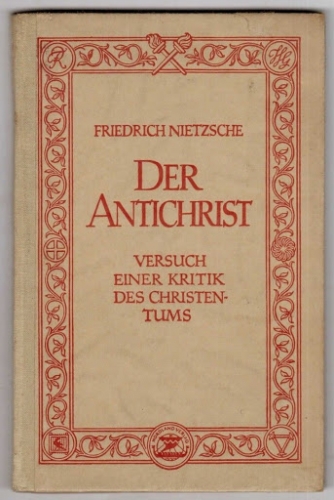 Effectivement. Si « les doux hériteront de la Terre », il n’y a pas de place pour un effort humain vers l’infini, qui atteigne son but, et qui place l’Homme sur le même plan que Dieu. Si la douceur, l’humilité, l’« humble agneau de Dieu » est l’archétype fondateur d’une culture, alors bien sûr l’infini et l’inconnu ne pourront jamais être atteints. « Tu ne connaîtras pas » : il est étonnant de voir tout ce que nous avons réalisé en dépit de cela, et ces remarquables réalisations occidentales sont survenues – pas par hasard – principalement pendant les périodes automnale et hivernale de la Haute Culture faustienne. C’est seulement quand les contraintes imposées par la culture à définition chrétienne se sont dissipées dans une large mesure que l’acceptation a priori de l’échec s’est affaiblie. Le problème est qu’avec une haute Culture décadente et mourante, cette émancipation (partielle) vis-à-vis du culte de l’humilité ne mènera nulle part. Seule une nouvelle Haute Culture bâtie sur le concept fondamental de la transcendance humaine, et sur la conquête de l’infini et de l’inconnu, permettra à l’Homme Occidental d’accomplir son destin. Les ruines croulantes de la Haute Culture précédente peuvent servir de blocs de construction pour le futur, c’est certain, elles peuvent fournir une inspiration, certainement, et être une source de fierté, c’est sûr. Mais nous devons regarder vers le Futur, et non pas monter la garde auprès d’un Passé mourant ou mort, comme le soldat romain de Spengler.
Effectivement. Si « les doux hériteront de la Terre », il n’y a pas de place pour un effort humain vers l’infini, qui atteigne son but, et qui place l’Homme sur le même plan que Dieu. Si la douceur, l’humilité, l’« humble agneau de Dieu » est l’archétype fondateur d’une culture, alors bien sûr l’infini et l’inconnu ne pourront jamais être atteints. « Tu ne connaîtras pas » : il est étonnant de voir tout ce que nous avons réalisé en dépit de cela, et ces remarquables réalisations occidentales sont survenues – pas par hasard – principalement pendant les périodes automnale et hivernale de la Haute Culture faustienne. C’est seulement quand les contraintes imposées par la culture à définition chrétienne se sont dissipées dans une large mesure que l’acceptation a priori de l’échec s’est affaiblie. Le problème est qu’avec une haute Culture décadente et mourante, cette émancipation (partielle) vis-à-vis du culte de l’humilité ne mènera nulle part. Seule une nouvelle Haute Culture bâtie sur le concept fondamental de la transcendance humaine, et sur la conquête de l’infini et de l’inconnu, permettra à l’Homme Occidental d’accomplir son destin. Les ruines croulantes de la Haute Culture précédente peuvent servir de blocs de construction pour le futur, c’est certain, elles peuvent fournir une inspiration, certainement, et être une source de fierté, c’est sûr. Mais nous devons regarder vers le Futur, et non pas monter la garde auprès d’un Passé mourant ou mort, comme le soldat romain de Spengler.
Si je n’ai aucun dédain pour les croyances des gens, qu’elles soient chrétiennes ou païennes, je ne vois pas un renouveau des anciens dieux païens comme une amélioration avancée par rapport au déclin du faustianisme. Remplacer Jésus par Thor, à mon avis, revient simplement à remplacer une béquille par une autre. Les hommes blancs ne devraient plus aller chercher des dieux exogènes, qu’ils soient nouveaux ou anciens ; nous devrions plutôt rechercher la divinité pour notre race. Pour l’homme blanc, il est temps de grandir et de rejeter les fantaisies de l’enfance, les fantaisies des dieux et des forces intelligentes externes contrôlant un destin que nous devrions être les seuls, vraiment les seuls, à modeler. La devise du monde antique était « Connais-toi toi-même », alors que celle de l’Age Faustien était une combinaison de « Tu ne connaîtras pas » et de « Tu tenteras de connaître et tu échoueras ». Pour la nouvelle Haute Culture de l’Occident, je propose la devise : « Tu connaîtras et tu triompheras ». Cela inaugurera une ère dans laquelle l’Homme Occidental libérera son potentiel en brisant les chaînes imposées par une infériorité supposée devant des dieux imaginaires.
La citation suivante de Yockey, dans The Enemy of Europe [16], résume l’objectif palingénésique que nous tenterions d’atteindre, si nous le voulions :
« Notre Mission européenne est de créer la Culture-Nation-Etat-Imperium de l’Occident, et ainsi nous accomplirons de telles actions, accomplirons de tels travaux, et transformerons tellement notre monde que notre descendance lointaine, en voyant les vestiges de nos édifices et de nos remparts, dira à ses petits-enfants qu’une tribu de dieux vivait jadis sur le sol de l’Europe. »
En d’autres mots, pas de dieux imaginaires. C’est l’Homme qui deviendra « Dieu ». Dans le livre The Portable Nietzsche, l’éditeur Walter Kaufmann interprète ainsi le « surhomme » de Nietzsche :
« ce qui est évoqué n’est pas une super-brute mais un être humain qui a créé pour lui-même cette position unique dans le cosmos, que la Bible considérait comme son droit de naissance. »
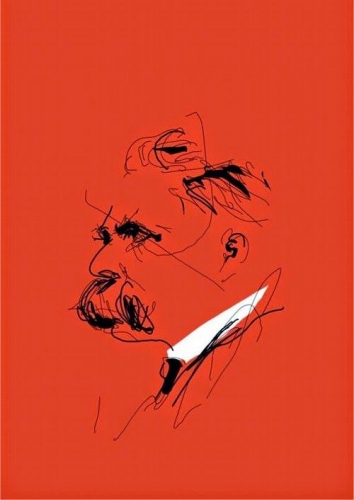
Tout cela est très bien sauf la dernière partie : « La Bible ». Non, monsieur Kaufman, la Bible ne considère pas le Surhomme comme le droit ultime de l’humanité, elle considère plutôt que c’est le « dernier homme ». C’est nous qui devons choisir ce qu’est notre « droit de naissance », pas les fantaisies délirantes de « la Bible ». Cependant, cela étant dit, le reste de la description est sain, si nous considérons qu’elle est appliquée à la race dans son ensemble et pas seulement à des individus sélectionnés dans cette race. Plus d’échec « fier et tragique » dans « l’effort vers l’inaccessible » comme dans la culture « faustienne » – au contraire, la Culture Surhumaniste sera caractérisée par le fier accomplissement réussi de la recherche de l’infini. C’est ce qu’un individu optimiste peut envisager comme nouvelle Haute Culture de l’Occident, avec des liens avec la culture antique et avec la culture faustienne, mais surpassant les deux dans le but et l’objectif de l’esprit humain. Voilà ce que peut être et doit être le Destin Occidental.
Que pouvons-nous faire pour pousser les choses dans la bonne direction ?
Bien que l’auteur juif Isaac Asimov ne soit peut-être pas très populaire parmi les nationalistes blancs, sa série Fondation [17] peut fournir une analogie utile. « La Fondation » était conçue comme piste de lancement pour une nouvelle civilisation après l’effondrement de l’« Empire galactique », afin que l’« ère barbare » après l’effondrement ne dure que quelques milliers d’années, au lieu de 30.000 ans. Placés comme nous le sommes devant l’effondrement de l’Occident à travers l’Hiver de l’Age Faustien, il serait prudent de semer les graines d’une nouvelle civilisation occidentale blanche émergente sur le long terme, tout en luttant aussi à court terme et à moyen terme pour préserver la race blanche et sauver la plus grande partie possible de la civilisation faustienne occidentale. Sans ces objectifs à plus court terme, la renaissance civilisationnelle à long terme ne sera pas possible. Inversement, sans une renaissance civilisationnelle, le préservationnisme blanc à long terme serait contestable.
Ainsi, il y a deux choses qui sont nécessaires ici. D’abord il y a la lutte pour la préservation raciale blanche et pour sauver autant que possible de la culture faustienne, pour servir de base de connaissance et de blocs de construction pour la nouvelle Haute Culture de l’Occident. Ensuite, il faut initier un effort pour commencer à poser les fondations de cette nouvelle Haute Culture. Comme indiqué plus haut, une Haute Culture est bien sûr un phénomène organique qui ne peut pas être créé sous une forme préparée à l’avance et artificiellement imposée à un peuple. Néanmoins, il est possible de semer les graines et d’avoir quelque choix concernant les gaines qui doivent être semées. Et ensuite, nous pourrons nourrir le jeune plant pendant qu’il poussera, et pendant qu’il se développera d’après son propre caractère inhérent. Cela, nous pouvons le faire et nous devons le faire.
C’est une question sérieuse requérant une stratégie pensée à l’avance et d’un caractère visionnaire extrême, pas une chose qui peut être « discutée » légèrement sur des « liens de blogs » ou sur des forums publics (typiquement malsains). Ce n’est pas une chose qui peut être faite en un jour. C’est un projet à long terme, sur plusieurs générations, qui doit être entrepris par des individus dévoués voulant poser les fondations de quelque chose de grand et de noble pour la postérité. Ce ne sera pas une « réparation rapide » dont les résultats pourraient être vus dans une décennie ou deux ; au contraire, c’est un projet qui a le potentiel pour influencer le cours de l’histoire humaine, et il doit être mis en œuvre à ce niveau supérieur.
Par conséquent, cet essai est simplement un appel à l’action et un examen initial et rapide des possibilités. Si un tel projet est initié un jour, il ne devrait pas et ne doit pas se perdre dans les détails des « mouvements » habituels qui obsèdent beaucoup de militants, et ne peut pas non plus être lié à l’activisme « défensif » plus sérieux, mais à court terme, qui est requis pour sauver notre peuple et notre culture aujourd’hui. C’est une autre question, sur un plan entièrement différent.
Beaucoup sont appelés ; peu sont élus. Le Futur attend.



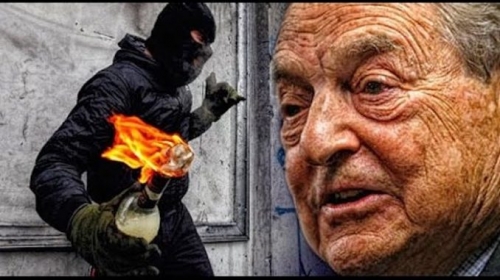



 del.icio.us
del.icio.us
 Digg
Digg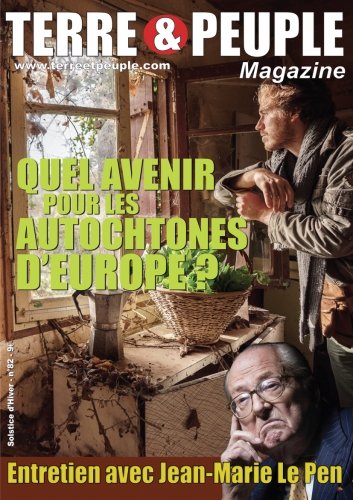







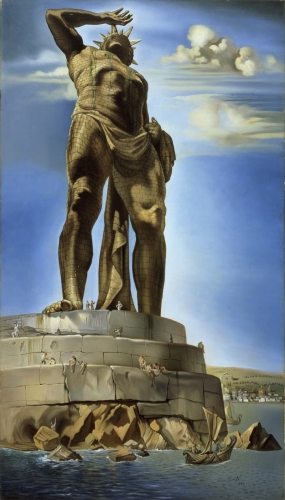
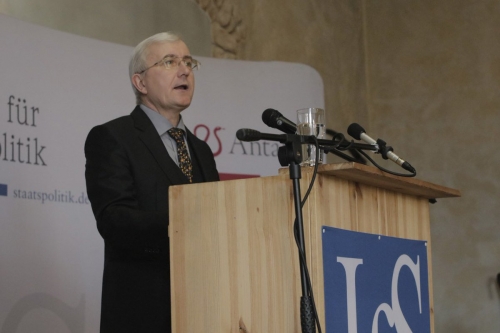
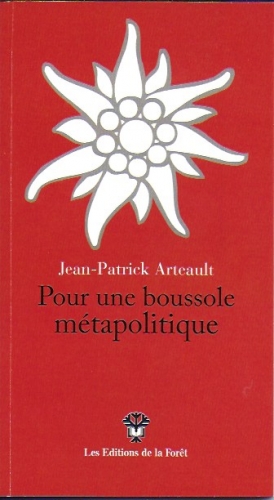
 Vous insistez beaucoup, pour l’efficacité de l’action métapolitique, sur la compréhension d’un contexte fait de l’emboîtement de trois éléments : l’Occident, le Système et le Régime. En quelques mots, que voulez-vous dire par là ?
Vous insistez beaucoup, pour l’efficacité de l’action métapolitique, sur la compréhension d’un contexte fait de l’emboîtement de trois éléments : l’Occident, le Système et le Régime. En quelques mots, que voulez-vous dire par là ?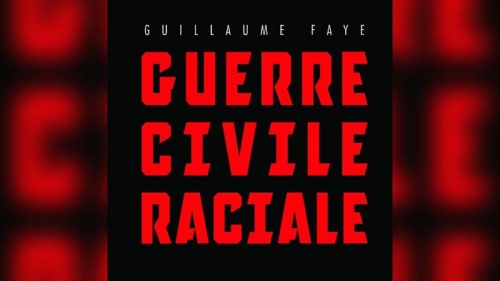
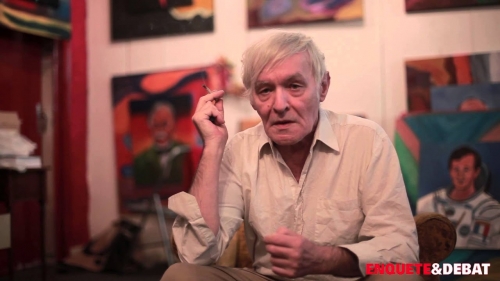

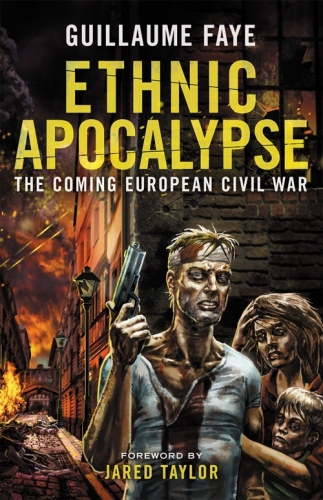
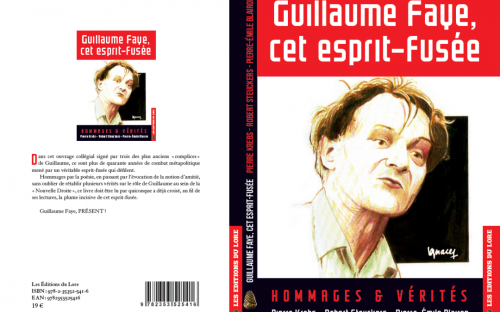

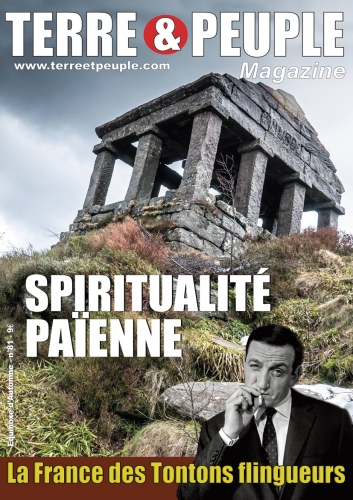
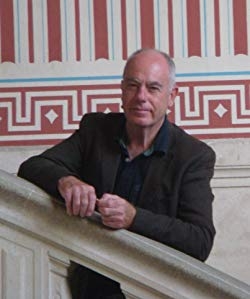 Sur une batterie de huit questions sur la spiritualité païenne que leur a posée Pierre Vial, deux personnalités consacrées en ce domaine,
Sur une batterie de huit questions sur la spiritualité païenne que leur a posée Pierre Vial, deux personnalités consacrées en ce domaine, 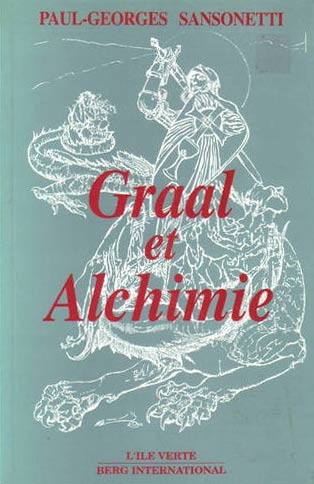 Pour sa part,
Pour sa part, 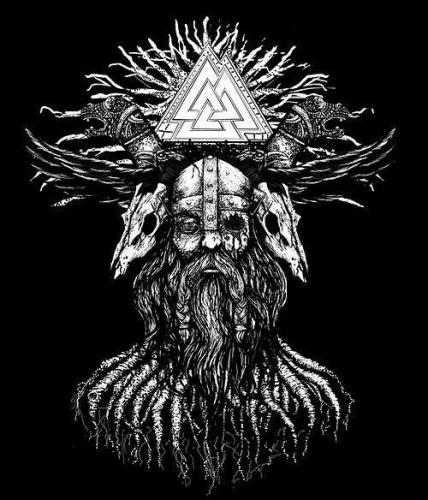 Halfdan Rekkirsson
Halfdan Rekkirsson  Jean-Christophe Mathelin,
Jean-Christophe Mathelin,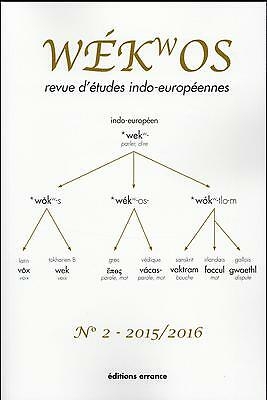 Robert Dragan
Robert Dragan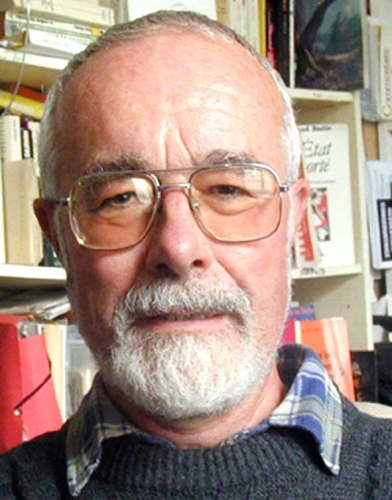
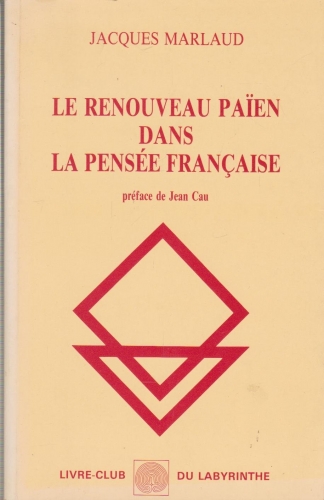 En 1986 paraît au Livre-club du Labyrinthe Le renouveau païen dans la pensée française, adaptation de sa thèse soutenue à l’Université sud-africaine de Port-Elizabeth. Il associe le paganisme à l’Europe. Bien qu’il sache que « le paganisme européen […] n’a pas de corps de doctrine cohérent et explicite (idem, p. 19) », il le conçoit néanmoins comme « une échelle de valeurs, une alternative spirituelle pour les Européens désorientés. Il ouvre une quatrième voie entre le théocratisme réactionnaire de certaines Églises qui refusent d’enterrer leur Dieu mort, l’humanisme égalitaire de ceux qui ont remplacé l’idéal de Jésus par celui de Spartacus, et le matérialisme stérile de ceux qui professent diverses utopies économiques (idem, p. 23) ». Il jugera plus tard dans son recueil d’entretiens et d’articles de 2004, Interpellations. Questionnements métapolitiques (Dualpha) que le nationalisme, « une idée juive (id., p. 301) », représente « une solution de facilité qui tend à désigner de faux ennemis et nous trompe sur les enjeux véritables (id., p. 304) », que c’est aussi « une idée moderne et bourgeoise (id., p. 301) », « un slogan vague et désuet (id., p. 299) ». Voyant le « nationalisme intégral et [… le] cosmopolitisme intégral [comme] deux frères ennemis unis par une commune hostilité à l’Europe (id., p. 163) », il appelle dès 1989 à libérer l’Europe de l’Ouest de la tutelle yankee, encourage partout sur la planète « la cause des peuples contre le bunker occidental (id., p. 62) » et participe en 1999 au « Collectif Non à la guerre » lancé par Arnaud Guyot-Jeannin, Laurent Ozon et Charles Champetier qui s’élève contre l’agression serbophobe de l’OTAN. Opposant volontiers le Logos au Mythos, la pensée rationalisante dans ses variantes chrétiennes et laïques à l’idée païenne, Jacques Marlaud appelle à la résurgence des vertus guerrières d’« un surhumanisme différencialiste qui recrée sans cesse des “ ordres de rang ”. Il définit les bio-cultures comme les racines constitutives d’identités, perpétuellement contestées (décadence) et sans cesse réaffirmées par un auto-dépassement créateur de valeurs, de schémas explicatifs, de mythes (Le Renouveau païen…, pp. 27 – 28) ».
En 1986 paraît au Livre-club du Labyrinthe Le renouveau païen dans la pensée française, adaptation de sa thèse soutenue à l’Université sud-africaine de Port-Elizabeth. Il associe le paganisme à l’Europe. Bien qu’il sache que « le paganisme européen […] n’a pas de corps de doctrine cohérent et explicite (idem, p. 19) », il le conçoit néanmoins comme « une échelle de valeurs, une alternative spirituelle pour les Européens désorientés. Il ouvre une quatrième voie entre le théocratisme réactionnaire de certaines Églises qui refusent d’enterrer leur Dieu mort, l’humanisme égalitaire de ceux qui ont remplacé l’idéal de Jésus par celui de Spartacus, et le matérialisme stérile de ceux qui professent diverses utopies économiques (idem, p. 23) ». Il jugera plus tard dans son recueil d’entretiens et d’articles de 2004, Interpellations. Questionnements métapolitiques (Dualpha) que le nationalisme, « une idée juive (id., p. 301) », représente « une solution de facilité qui tend à désigner de faux ennemis et nous trompe sur les enjeux véritables (id., p. 304) », que c’est aussi « une idée moderne et bourgeoise (id., p. 301) », « un slogan vague et désuet (id., p. 299) ». Voyant le « nationalisme intégral et [… le] cosmopolitisme intégral [comme] deux frères ennemis unis par une commune hostilité à l’Europe (id., p. 163) », il appelle dès 1989 à libérer l’Europe de l’Ouest de la tutelle yankee, encourage partout sur la planète « la cause des peuples contre le bunker occidental (id., p. 62) » et participe en 1999 au « Collectif Non à la guerre » lancé par Arnaud Guyot-Jeannin, Laurent Ozon et Charles Champetier qui s’élève contre l’agression serbophobe de l’OTAN. Opposant volontiers le Logos au Mythos, la pensée rationalisante dans ses variantes chrétiennes et laïques à l’idée païenne, Jacques Marlaud appelle à la résurgence des vertus guerrières d’« un surhumanisme différencialiste qui recrée sans cesse des “ ordres de rang ”. Il définit les bio-cultures comme les racines constitutives d’identités, perpétuellement contestées (décadence) et sans cesse réaffirmées par un auto-dépassement créateur de valeurs, de schémas explicatifs, de mythes (Le Renouveau païen…, pp. 27 – 28) ».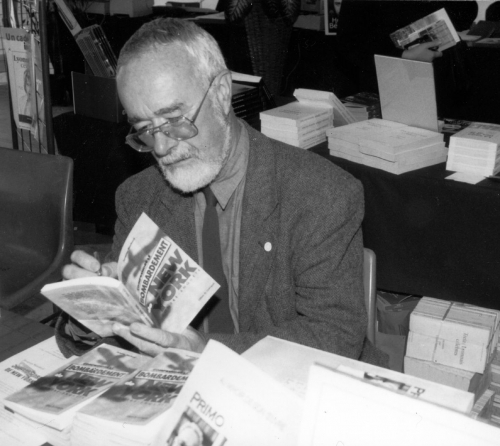
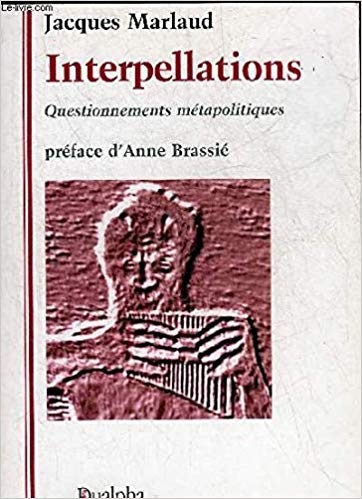 Or, l’héritage indo-européen (ou boréen) a modelé « les traits distinctifs d’une identité spirituelle qui fait de l’Europe, plus qu’un continent, plus qu’un ensemble politique, une communauté spirituelle (Interpellations, p. 164) ». Pourtant, « l’Europe n’aura une existence propre que lorsqu’elle se dégagera de l’étreinte mortelle d’un Occident qui n’est rien d’autre que le modèle américain, modèle qui perd peu à peu son attraction et ne pourra continuer de s’imposer que par le recours à une violence accrue (Comprendre…, p. 107) ». En authentique gibelin d’expression française, Jacques Marlaud prône un Empire continental capable d’« intégrer (plutôt qu’à dissoudre) l’échelon civique ou politique au sein d’un ensemble plus vaste qui lui redonne son sens en le reliant à ses racines infrapolitiques organiques et à sa cime métapolitique (mythique et cosmique) (Interpellations, p. 172) ». Sa promotion de l’idée impériale européenne repose par ailleurs sur l’articulation agonistique des régions vernaculaires, des nations politico-historiques et de l’échelon continental. Il condamne la parapolitique, c’est-à-dire susciter une action politicienne sous un quelconque prétexte culturel, ce qui n’est ni de la métapolitique, ni même en tant que lecteur attentif d’Heidegger, de la poésie. Ainsi juge-t-il plutôt que « l’identité d’un grand peuple conscient de son héritage se défend plus efficacement sur la longue durée au niveau poétique qu’au niveau épidermique (id., p. 304) ».
Or, l’héritage indo-européen (ou boréen) a modelé « les traits distinctifs d’une identité spirituelle qui fait de l’Europe, plus qu’un continent, plus qu’un ensemble politique, une communauté spirituelle (Interpellations, p. 164) ». Pourtant, « l’Europe n’aura une existence propre que lorsqu’elle se dégagera de l’étreinte mortelle d’un Occident qui n’est rien d’autre que le modèle américain, modèle qui perd peu à peu son attraction et ne pourra continuer de s’imposer que par le recours à une violence accrue (Comprendre…, p. 107) ». En authentique gibelin d’expression française, Jacques Marlaud prône un Empire continental capable d’« intégrer (plutôt qu’à dissoudre) l’échelon civique ou politique au sein d’un ensemble plus vaste qui lui redonne son sens en le reliant à ses racines infrapolitiques organiques et à sa cime métapolitique (mythique et cosmique) (Interpellations, p. 172) ». Sa promotion de l’idée impériale européenne repose par ailleurs sur l’articulation agonistique des régions vernaculaires, des nations politico-historiques et de l’échelon continental. Il condamne la parapolitique, c’est-à-dire susciter une action politicienne sous un quelconque prétexte culturel, ce qui n’est ni de la métapolitique, ni même en tant que lecteur attentif d’Heidegger, de la poésie. Ainsi juge-t-il plutôt que « l’identité d’un grand peuple conscient de son héritage se défend plus efficacement sur la longue durée au niveau poétique qu’au niveau épidermique (id., p. 304) ».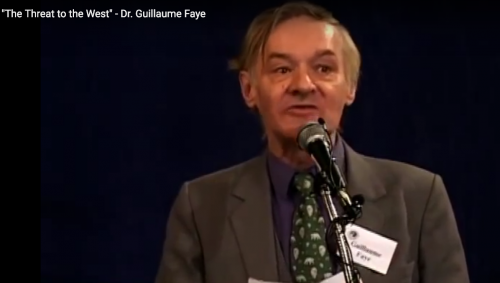


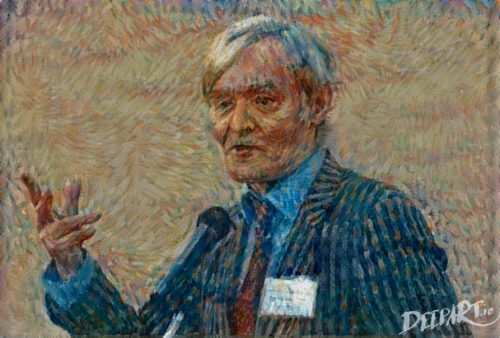
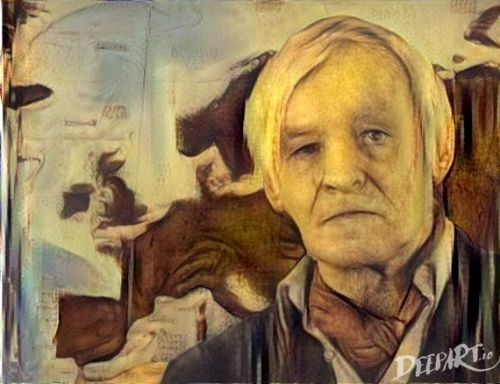
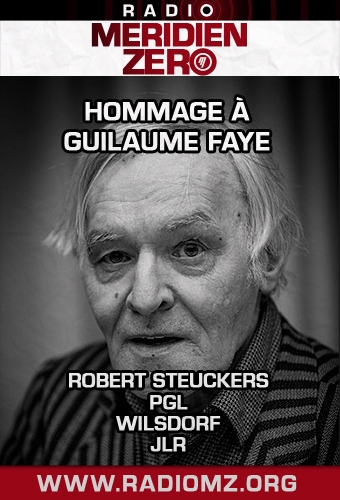
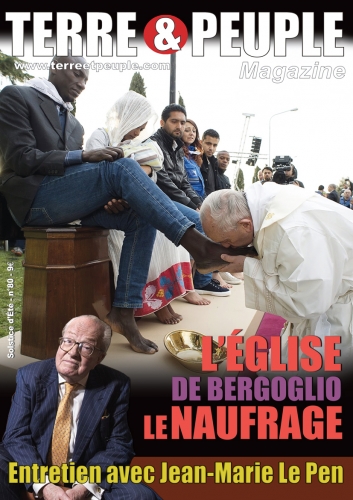
 A sa mort, lui succède sous le nom de Paul VI le cardinal Montini, compromis dans l’affaire du Russicum (dénonciation au KGB des prêtres et évêques clandestins derrière le rideau de fer). Pour le cardinal Traglia : « Le diable est au Vatican. » Padre Pio le dénonce de même. Mais le concile consacre le triomphe des modernistes. L’encyclique Nostra Aetate reconnaît le judaïsme comme religion-mère. Le Sanhédrin n’est plus responsable du déicide. L’Eglise s’est trompée durant 1965 ans ! Pour le cardinal Suenens, lui aussi franc-maçon : « Vatican II, c’est 1789 dans l’Eglise. » Les francs-maçons étant excommuniés de facto, tous les papes depuis 1958 sont des anti-papes ! De nouveaux rituels d’ordination et de sacre sont promulgués, sans être théologiquement motivés, ce qui pose la question de leur validité. Le rituel de la messe est profondément modifié, écourté et simplifié. Les traditionnalistes se replient derrière Mgr Lefebvre, lequel ordonne plusieurs évêques, ou derrière d’autres dissidents, dont les Sédévacantistes qui considèrent que le siège de Pierre est inoccupé. Les premiers se divisent entre la Fraternité Saint Pierre et la Fraternité Saint Pie X. Celle-ci se divise à nouveau entre ceux qui acceptent la main tendue par Benoît XVI à son supérieur Mgr Fellay et ceux qui jugent que c’est un piège.
A sa mort, lui succède sous le nom de Paul VI le cardinal Montini, compromis dans l’affaire du Russicum (dénonciation au KGB des prêtres et évêques clandestins derrière le rideau de fer). Pour le cardinal Traglia : « Le diable est au Vatican. » Padre Pio le dénonce de même. Mais le concile consacre le triomphe des modernistes. L’encyclique Nostra Aetate reconnaît le judaïsme comme religion-mère. Le Sanhédrin n’est plus responsable du déicide. L’Eglise s’est trompée durant 1965 ans ! Pour le cardinal Suenens, lui aussi franc-maçon : « Vatican II, c’est 1789 dans l’Eglise. » Les francs-maçons étant excommuniés de facto, tous les papes depuis 1958 sont des anti-papes ! De nouveaux rituels d’ordination et de sacre sont promulgués, sans être théologiquement motivés, ce qui pose la question de leur validité. Le rituel de la messe est profondément modifié, écourté et simplifié. Les traditionnalistes se replient derrière Mgr Lefebvre, lequel ordonne plusieurs évêques, ou derrière d’autres dissidents, dont les Sédévacantistes qui considèrent que le siège de Pierre est inoccupé. Les premiers se divisent entre la Fraternité Saint Pierre et la Fraternité Saint Pie X. Celle-ci se divise à nouveau entre ceux qui acceptent la main tendue par Benoît XVI à son supérieur Mgr Fellay et ceux qui jugent que c’est un piège. Alain Cagnat
Alain Cagnat 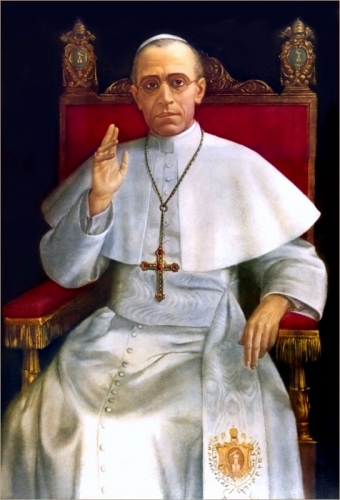 Alain Cagnat
Alain Cagnat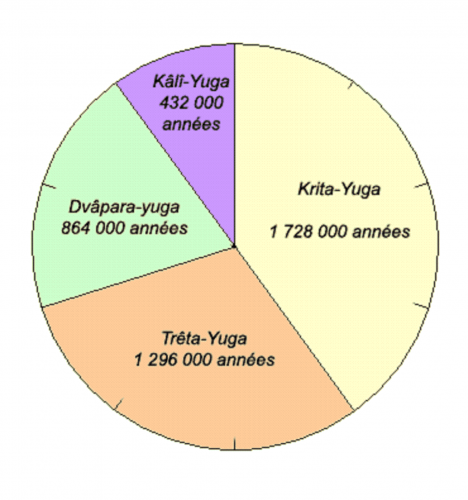
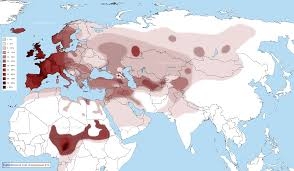
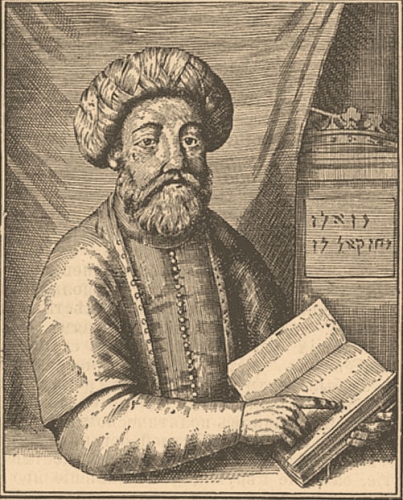 Pierre Vial
Pierre Vial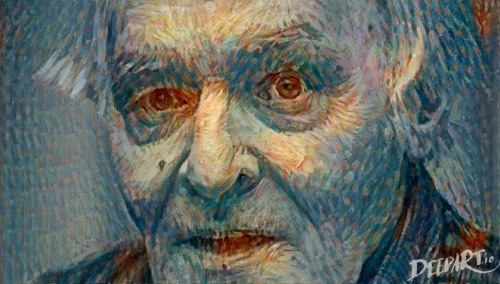
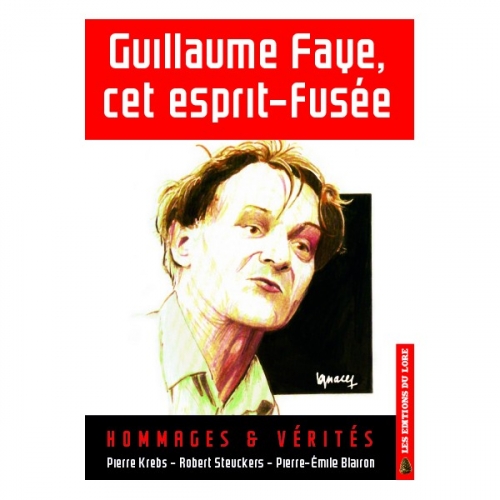

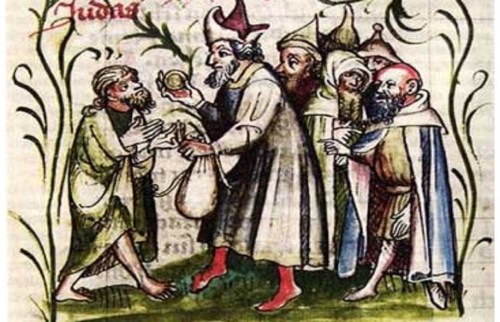
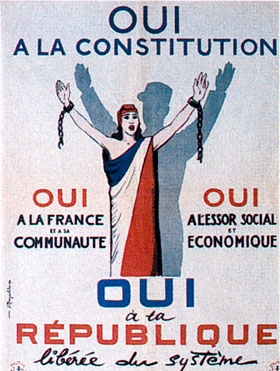 De Gaulle, créant la Ve République, érige le référendum en principe, lequel se retournera contre lui en 1969. Le référendum d’initiative populaire, très présent en Suisse, est aujourd’hui revendiqué, sous l’étiquette RIC, par les Gilets Jaunes. Ce soulèvement évoque les jacqueries paysannes médiévales et les Rebeynes lyonnaises. En 1436, à Lyon, les sauvages du baz estat se sont assemblés de leur propre autorité pour imposer dix élus commis par le peuple au Consulat de la ville, afin de faire payer les coupables de fraude fiscale. La Grande Rebeyne de 1529 vise la gestion municipale qui favorise les marchands. Ceux-ci contraignent les artisans par la concurrence des étrangers et détruisent la commune. On refuse aux métiers des jurandes pour organiser leur solidarité. Alors que le luxe des riches s’étale, le pouvoir d’achat du peuple baisse jusqu’à la disette. Au mois d’avril 1529, des placards séditieux signés le Povre apparaissent aux carrefours, appelant à punir les coupables et leurs complices du Consulat. Ils fixent rendez-vous au peuple le 25 avril au couvent des Cordeliers. S’y retrouve une multitude de ‘menu peuple, povres mesnagers’, qui pille le couvent et ensuite les demeures des ‘gros accapareurs, bourgeois, gens riches et apparents de la ville’. Le consulat fait appel au roi qui envoie cent gentilhommes ordinaires. Dans les jours suivants, on dresse onze potences pour les meneurs. Lyon connaîtra par la suite encore bien d’autres révoltes résultant de l’opposition entre le capital et le travail pour déboucher, au XIXe siècle, sur les insurrections des Canuts. Mais le pouvoir royal a tôt compris la volonté du peuple d’être entendu lorsqu’il est victime des manœuvres des ‘gros’. C’est la raison des Etats généraux.
De Gaulle, créant la Ve République, érige le référendum en principe, lequel se retournera contre lui en 1969. Le référendum d’initiative populaire, très présent en Suisse, est aujourd’hui revendiqué, sous l’étiquette RIC, par les Gilets Jaunes. Ce soulèvement évoque les jacqueries paysannes médiévales et les Rebeynes lyonnaises. En 1436, à Lyon, les sauvages du baz estat se sont assemblés de leur propre autorité pour imposer dix élus commis par le peuple au Consulat de la ville, afin de faire payer les coupables de fraude fiscale. La Grande Rebeyne de 1529 vise la gestion municipale qui favorise les marchands. Ceux-ci contraignent les artisans par la concurrence des étrangers et détruisent la commune. On refuse aux métiers des jurandes pour organiser leur solidarité. Alors que le luxe des riches s’étale, le pouvoir d’achat du peuple baisse jusqu’à la disette. Au mois d’avril 1529, des placards séditieux signés le Povre apparaissent aux carrefours, appelant à punir les coupables et leurs complices du Consulat. Ils fixent rendez-vous au peuple le 25 avril au couvent des Cordeliers. S’y retrouve une multitude de ‘menu peuple, povres mesnagers’, qui pille le couvent et ensuite les demeures des ‘gros accapareurs, bourgeois, gens riches et apparents de la ville’. Le consulat fait appel au roi qui envoie cent gentilhommes ordinaires. Dans les jours suivants, on dresse onze potences pour les meneurs. Lyon connaîtra par la suite encore bien d’autres révoltes résultant de l’opposition entre le capital et le travail pour déboucher, au XIXe siècle, sur les insurrections des Canuts. Mais le pouvoir royal a tôt compris la volonté du peuple d’être entendu lorsqu’il est victime des manœuvres des ‘gros’. C’est la raison des Etats généraux. 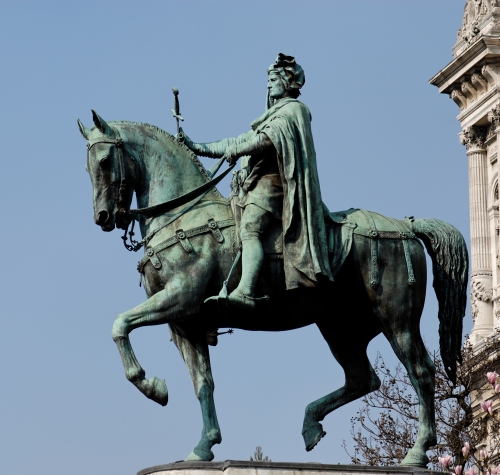 Dès le XIIe siècle, les seigneurs féodaux et les dignitaires ecclésiastiques ne suffisent plus. La bourgeoisie urbaine, enrichie et instruite, veut se faire entendre, de même que la petite noblesse et le bas clergé. Ainsi naît une représentation du peuple selon les trois ordres de la tripartition fonctionnelle des Indo-Européens, mais qui fait peu de cas des artisans et des ouvriers et des masses paysannes. Aux XIVe et XVe siècles, le pouvoir royal s’appuie souvent sur les états, lesquels sont parfois tentés de s’imposer, notamment pour contrôler la perception des impôts et l’utilisation des recettes. Dans les années 1355-58, les états de langue d’oïl sont des foyers d’agitation incessante, notamment de la part d’Etienne Marcel, riche prévôt des marchands parisiens, qui profite de la minorité du dauphin Charles mais sera finalement tué. Le dauphin accorde habilement un pardon général et liquide les états généraux. Quand, en 1789, Louis XVI convoque les états généraux, chaque bailliage rédige son cahier de doléances : il n’y a pas d’exemple dans l’histoire d’une pareille consultation écrite de tout un peuple. La nuit du 4 août, alors qu’une ‘grande peur’ se propage dans les campagnes, la Constituante décide l’abolition des privilèges fiscaux et la condamnation de tout un système. Est-ce à envisager aujourd’hui ?
Dès le XIIe siècle, les seigneurs féodaux et les dignitaires ecclésiastiques ne suffisent plus. La bourgeoisie urbaine, enrichie et instruite, veut se faire entendre, de même que la petite noblesse et le bas clergé. Ainsi naît une représentation du peuple selon les trois ordres de la tripartition fonctionnelle des Indo-Européens, mais qui fait peu de cas des artisans et des ouvriers et des masses paysannes. Aux XIVe et XVe siècles, le pouvoir royal s’appuie souvent sur les états, lesquels sont parfois tentés de s’imposer, notamment pour contrôler la perception des impôts et l’utilisation des recettes. Dans les années 1355-58, les états de langue d’oïl sont des foyers d’agitation incessante, notamment de la part d’Etienne Marcel, riche prévôt des marchands parisiens, qui profite de la minorité du dauphin Charles mais sera finalement tué. Le dauphin accorde habilement un pardon général et liquide les états généraux. Quand, en 1789, Louis XVI convoque les états généraux, chaque bailliage rédige son cahier de doléances : il n’y a pas d’exemple dans l’histoire d’une pareille consultation écrite de tout un peuple. La nuit du 4 août, alors qu’une ‘grande peur’ se propage dans les campagnes, la Constituante décide l’abolition des privilèges fiscaux et la condamnation de tout un système. Est-ce à envisager aujourd’hui ?

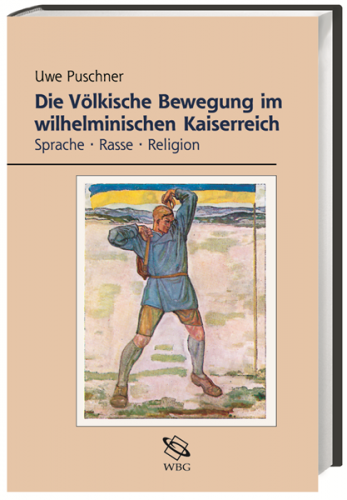 Thierry Durolle
Thierry Durolle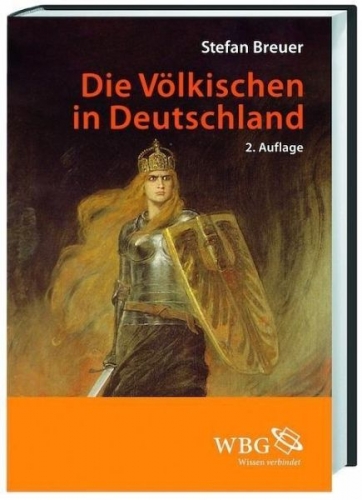 Robert Steuckers a évoqué le mouvement de la « Lebensreform », adventice au filon folciste et qui comporte nombre de ramifications, dont le mouvement colonial, le mouvement racialiste-hygiéniste, le mouvement eugéniste et les mouvements de jeunesse dont les Wandervögel, le végétarisme et le naturisme et un féminisme issu des religiosités nordiques pré-chrétiennes qui n’a rien de commun avec les Femens. Le völkisch peut passer pour un écologiste avant la lettre, si on ne perd pas de vue qu’il défend à l’origine la petite paysannerie contre la ploutocratie financière. Mais la défense des terroirs est aussi religieuse, réaction romantique au mécanicisme des Lumières. Elle regarde au contraire les faits de nature comme une croissance chaque fois originale. Alors que le mouvement socialiste soutient l’industrialisation et considère la protection de la nature comme un colifichet de luxe. Le mouvement bio-régionaliste des terroirs du Heimatschutz est politiquement indépendant, bien que dans l’Allemagne de Guillaume II les frontières soient poreuses entre le culturel, le social et le politique. Pour ce qui est de la spiritualité, les folcistes sont pénétrés de l’idée que la tradition germanique et européenne est immémoriale et qu’elle a été refoulée par la modernité. Ayant lu Lagarde et Nietzsche, le pasteur Bonus est enthousiasmé par la mythologie germanique et scandinave et veut germaniser le christianisme. Le dominicain rhénan Maître Eckhart (1260-1327), incarnation de la pensée germanique persécutée, a exercé une influence spirituelle majeure. Sur le plan socio-économique, le folcisme, né de la grande crise économique, bancaire et boursière du laisser faire et laisser passer, veut une protection des producteurs, paysannerie et artisans, posés comme les meilleurs, contre les spéculateurs, lie du peuple, contre les parasitaires, parmi lesquels les praticiens du droit, jugés étrangers au réel, les fonctionnaires, les intellocrates et journalistes et les boursicoteurs. Seules les strates des secteurs primaire et secondaire seraient représentées dans les assemblées. Dans sa révolution conservatrice, Armin Mohler oppose la pensée völkisch au nationalisme soldatique des frères Jünger, qui escomptaient une guerre héroïque et loyale, alors qu’elle est désormais une guerre des matériels, la perfection de la technique acculant à une décélération, pour préserver les rythmes lents de la nature. Le caractère extrême de la défaite de 1918 va susciter une virulence du militantisme, un radicalisme folciste de la part de plusieurs figures marquantes du futur mational-socialisme. La crise de 2008, dont les banquiers sont responsables, rend actuel l’héritage folciste.
Robert Steuckers a évoqué le mouvement de la « Lebensreform », adventice au filon folciste et qui comporte nombre de ramifications, dont le mouvement colonial, le mouvement racialiste-hygiéniste, le mouvement eugéniste et les mouvements de jeunesse dont les Wandervögel, le végétarisme et le naturisme et un féminisme issu des religiosités nordiques pré-chrétiennes qui n’a rien de commun avec les Femens. Le völkisch peut passer pour un écologiste avant la lettre, si on ne perd pas de vue qu’il défend à l’origine la petite paysannerie contre la ploutocratie financière. Mais la défense des terroirs est aussi religieuse, réaction romantique au mécanicisme des Lumières. Elle regarde au contraire les faits de nature comme une croissance chaque fois originale. Alors que le mouvement socialiste soutient l’industrialisation et considère la protection de la nature comme un colifichet de luxe. Le mouvement bio-régionaliste des terroirs du Heimatschutz est politiquement indépendant, bien que dans l’Allemagne de Guillaume II les frontières soient poreuses entre le culturel, le social et le politique. Pour ce qui est de la spiritualité, les folcistes sont pénétrés de l’idée que la tradition germanique et européenne est immémoriale et qu’elle a été refoulée par la modernité. Ayant lu Lagarde et Nietzsche, le pasteur Bonus est enthousiasmé par la mythologie germanique et scandinave et veut germaniser le christianisme. Le dominicain rhénan Maître Eckhart (1260-1327), incarnation de la pensée germanique persécutée, a exercé une influence spirituelle majeure. Sur le plan socio-économique, le folcisme, né de la grande crise économique, bancaire et boursière du laisser faire et laisser passer, veut une protection des producteurs, paysannerie et artisans, posés comme les meilleurs, contre les spéculateurs, lie du peuple, contre les parasitaires, parmi lesquels les praticiens du droit, jugés étrangers au réel, les fonctionnaires, les intellocrates et journalistes et les boursicoteurs. Seules les strates des secteurs primaire et secondaire seraient représentées dans les assemblées. Dans sa révolution conservatrice, Armin Mohler oppose la pensée völkisch au nationalisme soldatique des frères Jünger, qui escomptaient une guerre héroïque et loyale, alors qu’elle est désormais une guerre des matériels, la perfection de la technique acculant à une décélération, pour préserver les rythmes lents de la nature. Le caractère extrême de la défaite de 1918 va susciter une virulence du militantisme, un radicalisme folciste de la part de plusieurs figures marquantes du futur mational-socialisme. La crise de 2008, dont les banquiers sont responsables, rend actuel l’héritage folciste.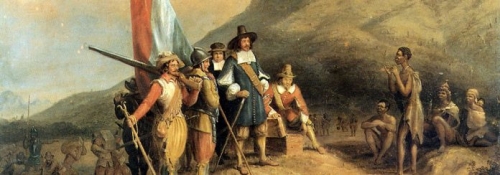
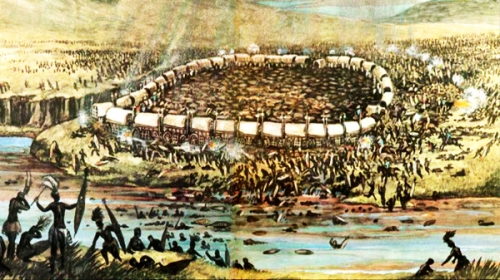


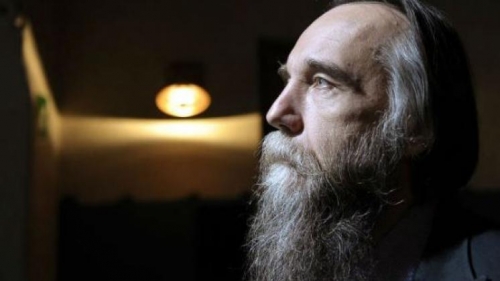
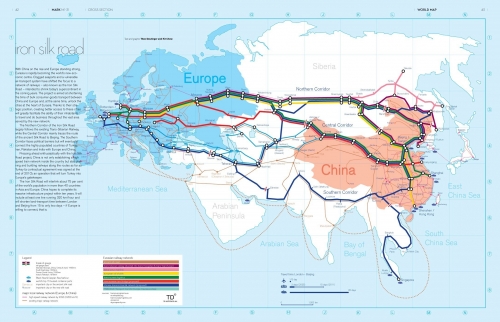
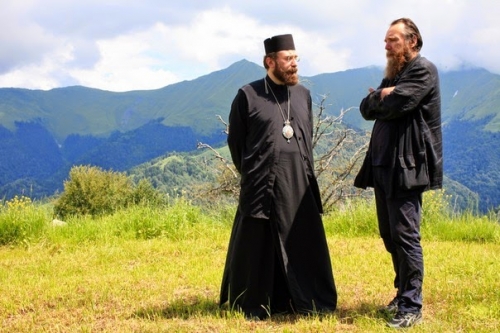
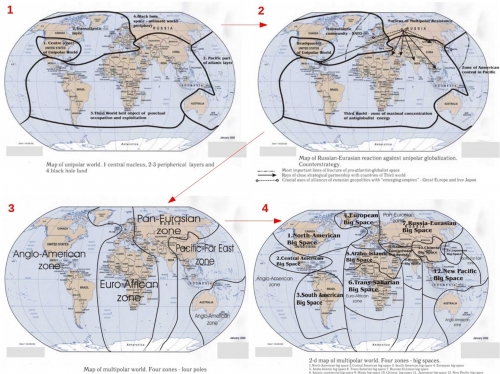
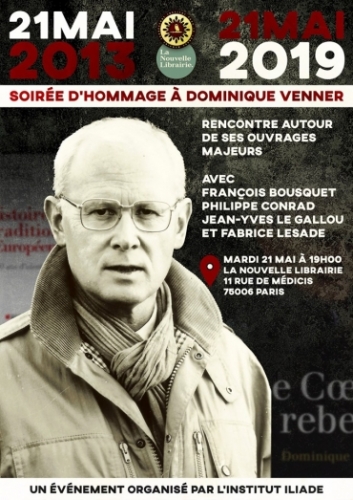

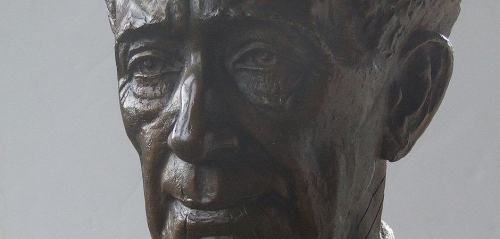
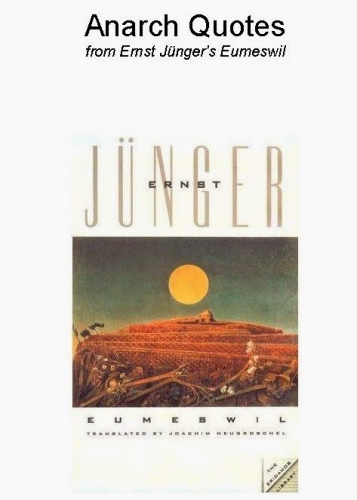 The first phase is the actively nihilistic phase. You can find this distinction in The Will to Power. Nietzsche explains that there are two kinds of nihilism. The first one is passive nihilism. It’s like a decrease in the strength of the spirit. It’s weariness. It’s weakness. It’s like a quasi-Buddhist “no” to life. It’s the will to hide from the suffering of life. So it is like an exhaustion, a devirilization, as we would say today. And for Nietzsche, of course, this was not only something metaphysical. It directly corresponded to the historical reality of Europe, and back in the nineteenth century, he said that Europe was now an aging Europe, an old Europe, a cosmopolitan Europe headed towards globalization. Not incidentally, Nietzsche was one of the pioneers of pan-Europeanism. I will also talk about that.
The first phase is the actively nihilistic phase. You can find this distinction in The Will to Power. Nietzsche explains that there are two kinds of nihilism. The first one is passive nihilism. It’s like a decrease in the strength of the spirit. It’s weariness. It’s weakness. It’s like a quasi-Buddhist “no” to life. It’s the will to hide from the suffering of life. So it is like an exhaustion, a devirilization, as we would say today. And for Nietzsche, of course, this was not only something metaphysical. It directly corresponded to the historical reality of Europe, and back in the nineteenth century, he said that Europe was now an aging Europe, an old Europe, a cosmopolitan Europe headed towards globalization. Not incidentally, Nietzsche was one of the pioneers of pan-Europeanism. I will also talk about that.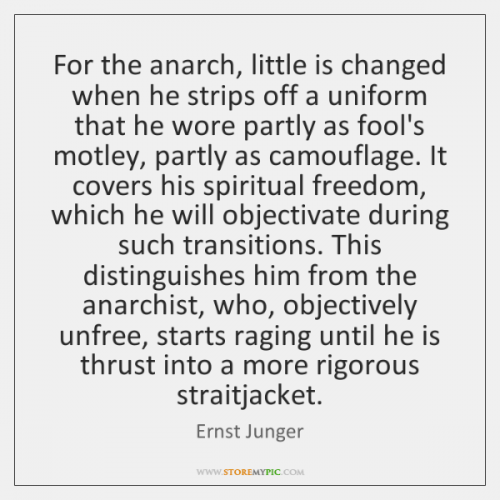

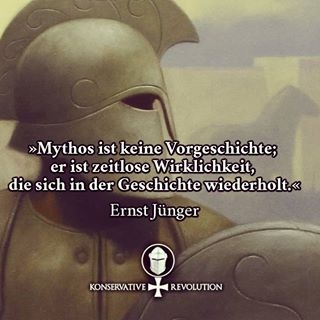 So this is the concept of sovereignty. And the model of the Anarch was represented by a historian, Martin Manuel Venator, who serves in a fortress of the tyrant of a future city-state, Condor. He works in his fortress at night, at the bar, and he listens to different conversations among the visitors and writes down his reflections, and he says, “I am an Anarch in space, and a meta-historian in time.” At first, this conception of the Anarch was taken differently by Ernst Jünger’s colleagues in the Third Way. For instance, Julius Evola believed that the concept of the forest passage, of Der Waldgang, was a betrayal of Jünger’s early views. He said that it is a reverse version of Ernst Jünger as we knew him. It’s as if he felt there was something bourgeois about this concept. But ten years later, Evola developed exactly the same concept of the differentiated personality in his book, Ride the Tiger. He also developed the concept of apoliteia, and later he wrote
So this is the concept of sovereignty. And the model of the Anarch was represented by a historian, Martin Manuel Venator, who serves in a fortress of the tyrant of a future city-state, Condor. He works in his fortress at night, at the bar, and he listens to different conversations among the visitors and writes down his reflections, and he says, “I am an Anarch in space, and a meta-historian in time.” At first, this conception of the Anarch was taken differently by Ernst Jünger’s colleagues in the Third Way. For instance, Julius Evola believed that the concept of the forest passage, of Der Waldgang, was a betrayal of Jünger’s early views. He said that it is a reverse version of Ernst Jünger as we knew him. It’s as if he felt there was something bourgeois about this concept. But ten years later, Evola developed exactly the same concept of the differentiated personality in his book, Ride the Tiger. He also developed the concept of apoliteia, and later he wrote 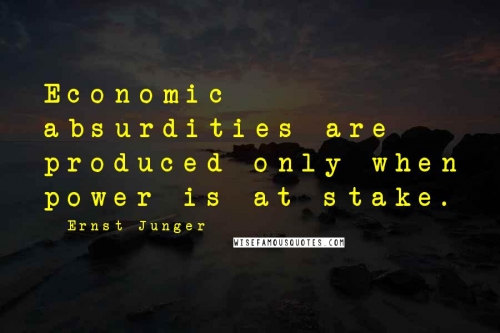

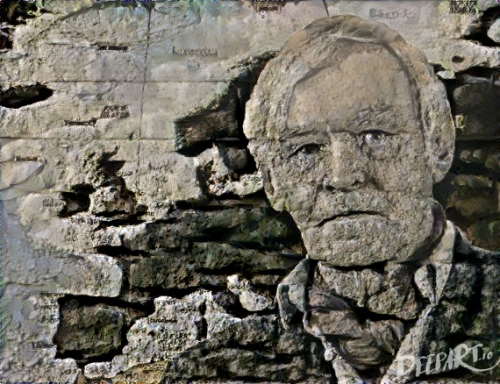
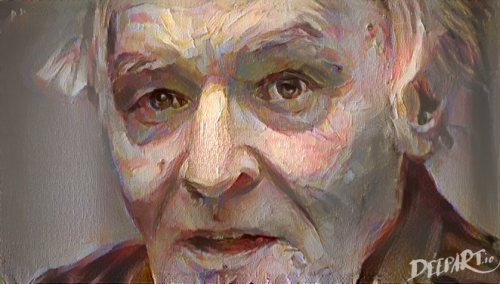
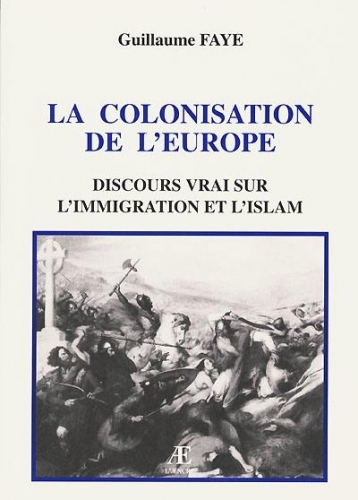 Après une quinzaine d’années de recul, Faye refit surface à la fin des années quatre-vingt-dix, alors que le mouvement identitaire, ou du moins ses idées, prenait une nouvelle orientation, se définissant de moins en moins comme « national-révolutionnaire » et davantage comme « identitaire ». La transition d’Unité radicale (UR) en Bloc identitaire, bien que causée par la dissolution d’UR illustre à merveille ce changement qui fut loin d’être superficiel.
Après une quinzaine d’années de recul, Faye refit surface à la fin des années quatre-vingt-dix, alors que le mouvement identitaire, ou du moins ses idées, prenait une nouvelle orientation, se définissant de moins en moins comme « national-révolutionnaire » et davantage comme « identitaire ». La transition d’Unité radicale (UR) en Bloc identitaire, bien que causée par la dissolution d’UR illustre à merveille ce changement qui fut loin d’être superficiel.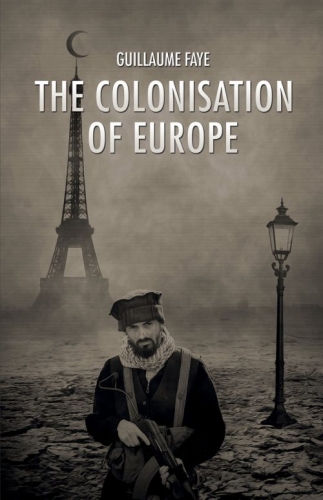 Aux discours et à la vision métapolitique véhiculée par ses compatriotes, Faye opposait la dure réalité. Les conflits ethniques et la submersion migratoire n’auraient rien à voir avec les débats académiques opposant les tenants de la Révolution conservatrice contre les adeptes d’un socialisme européen. Cet intellectualisme minant le camp national était pour lui une tare. Les grands mots ne changeraient rien quand la situation dégénérerait.
Aux discours et à la vision métapolitique véhiculée par ses compatriotes, Faye opposait la dure réalité. Les conflits ethniques et la submersion migratoire n’auraient rien à voir avec les débats académiques opposant les tenants de la Révolution conservatrice contre les adeptes d’un socialisme européen. Cet intellectualisme minant le camp national était pour lui une tare. Les grands mots ne changeraient rien quand la situation dégénérerait.
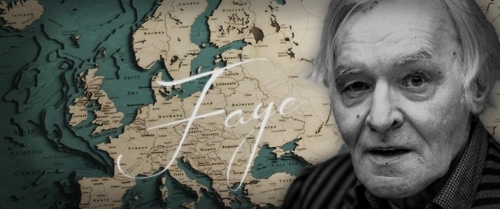
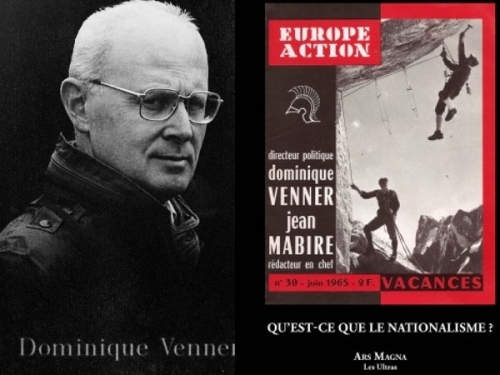
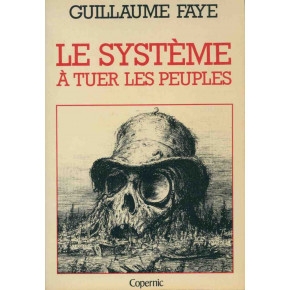 Ce n’est pas un philosophe, autoproclamé ou pas, même s’il est amoureux de la sagesse, comme l’indique le mot lui-même, mais ce mot a subi tellement d’avatars qu’il ne veut plus dire ce qu’il exprime.
Ce n’est pas un philosophe, autoproclamé ou pas, même s’il est amoureux de la sagesse, comme l’indique le mot lui-même, mais ce mot a subi tellement d’avatars qu’il ne veut plus dire ce qu’il exprime. Pendant une période qui a quand même duré dix ans, de 1987 à 1997, Il a été un animateur de radio reconnu sous le nom de Skyman, et aussi de télévision sur France 2 où il imaginait des canulars dans l’émission Télématin. Il a aussi, pendant cette même période, collaboré à des revues de bandes dessinées comme L’Echo des savanes, en compagnie d’auteurs plus ou moins déjantés généralement situés à l’extrême-gauche.
Pendant une période qui a quand même duré dix ans, de 1987 à 1997, Il a été un animateur de radio reconnu sous le nom de Skyman, et aussi de télévision sur France 2 où il imaginait des canulars dans l’émission Télématin. Il a aussi, pendant cette même période, collaboré à des revues de bandes dessinées comme L’Echo des savanes, en compagnie d’auteurs plus ou moins déjantés généralement situés à l’extrême-gauche.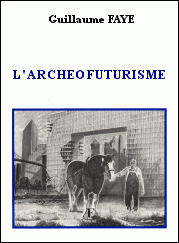 La pensée de Guillaume suivait très exactement l’évolution de la situation et il réagissait comme un général sur un champ de bataille, un général qui maîtrise l’ensemble des paramètres minute après minute et qui prend des décisions que la plupart de ses subordonnés ne comprennent pas. Ses lecteurs et ses amis ont souvent été désarçonnés par ce qu’ils croyaient être des revirements ; il n’en était rien ; Guillaume Faye se portait à l’assaut exactement là où les défenses faiblissaient et là où elles avaient besoin de renfort. Petit à petit, il a pointé très exactement – comme une « frappe chirurgicale » – le danger le plus important, écartant tous les autres et préconisant des alliances momentanées, avec Israël d’abord, ce qui n’a pas plu à tout le monde ; le danger auquel on devait prêter toute notre attention et tous nos efforts étant le Grand remplacement des populations européennes par des populations africaines manipulées et rassemblées par la religion musulmane. Dans son dernier livre paru post mortem, Guillaume ne fait plus la distinction entre islam et islamisme, il emploie donc le terme générique de « musulman ». J’ai acheté ce dernier livre à Daniel Conversano, son dernier éditeur, qui l’a tiré du coffre de sa voiture, dans l’enceinte même du cimetière où a été inhumé Guillaume. C’était encore une façon de lui rendre hommage.
La pensée de Guillaume suivait très exactement l’évolution de la situation et il réagissait comme un général sur un champ de bataille, un général qui maîtrise l’ensemble des paramètres minute après minute et qui prend des décisions que la plupart de ses subordonnés ne comprennent pas. Ses lecteurs et ses amis ont souvent été désarçonnés par ce qu’ils croyaient être des revirements ; il n’en était rien ; Guillaume Faye se portait à l’assaut exactement là où les défenses faiblissaient et là où elles avaient besoin de renfort. Petit à petit, il a pointé très exactement – comme une « frappe chirurgicale » – le danger le plus important, écartant tous les autres et préconisant des alliances momentanées, avec Israël d’abord, ce qui n’a pas plu à tout le monde ; le danger auquel on devait prêter toute notre attention et tous nos efforts étant le Grand remplacement des populations européennes par des populations africaines manipulées et rassemblées par la religion musulmane. Dans son dernier livre paru post mortem, Guillaume ne fait plus la distinction entre islam et islamisme, il emploie donc le terme générique de « musulman ». J’ai acheté ce dernier livre à Daniel Conversano, son dernier éditeur, qui l’a tiré du coffre de sa voiture, dans l’enceinte même du cimetière où a été inhumé Guillaume. C’était encore une façon de lui rendre hommage.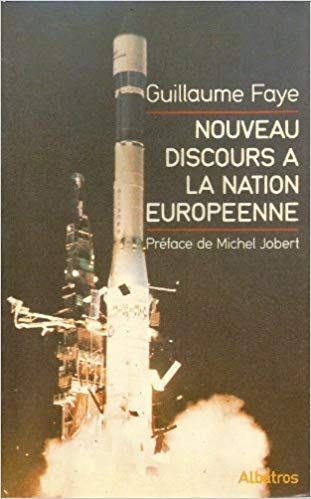 L’Europe
L’Europe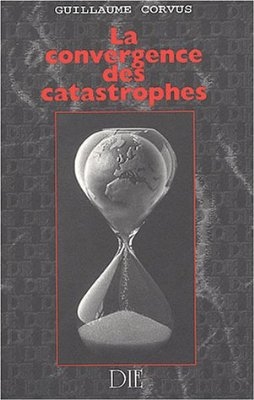 La convergence des catastrophes a des racines plus anciennes si l’on se reporte à un temps plus long, dans l’histoire sacrée des dieux plutôt que dans l’histoire récente des hommes, l’histoire profane. Toutes les anciennes traditions qui fonctionnent selon le système cyclique ont évoqué ce type de catastrophes ultimes dans le passé ; il suffit de lire Eliade, Daniélou, Evola ou Guénon pour s’en convaincre. La convergence des catastrophes, pour nos anciens, se manifeste par une conjonction de cycles astrologiques, les petits s’emboîtant dans les grands et qui, à un moment, se rejoignent tous pour arriver à leur fin pour ensuite repartir de plus belle, tout comme les aiguilles d’une montre se rejoignent sur le 6 (le 666) pour remonter ensuite toutes ensemble à des vitesses différentes. Guillaume m’avait d’ailleurs fait la surprise – je ne sais pas si c’est pour me faire plaisir – de citer un de mes articles sur le sujet dans sa Convergence des catastrophes, qu’il avait signée Corvus, mais je doute qu’il ait été vraiment convaincu par les références appuyées aux anciennes traditions de ce texte. Il s’agissait d’un article de la revue Roquefavour que j’éditais à l’époque, article datant de 2004, que j’ai repris ensuite dans mon livre La Roue et le sablier.
La convergence des catastrophes a des racines plus anciennes si l’on se reporte à un temps plus long, dans l’histoire sacrée des dieux plutôt que dans l’histoire récente des hommes, l’histoire profane. Toutes les anciennes traditions qui fonctionnent selon le système cyclique ont évoqué ce type de catastrophes ultimes dans le passé ; il suffit de lire Eliade, Daniélou, Evola ou Guénon pour s’en convaincre. La convergence des catastrophes, pour nos anciens, se manifeste par une conjonction de cycles astrologiques, les petits s’emboîtant dans les grands et qui, à un moment, se rejoignent tous pour arriver à leur fin pour ensuite repartir de plus belle, tout comme les aiguilles d’une montre se rejoignent sur le 6 (le 666) pour remonter ensuite toutes ensemble à des vitesses différentes. Guillaume m’avait d’ailleurs fait la surprise – je ne sais pas si c’est pour me faire plaisir – de citer un de mes articles sur le sujet dans sa Convergence des catastrophes, qu’il avait signée Corvus, mais je doute qu’il ait été vraiment convaincu par les références appuyées aux anciennes traditions de ce texte. Il s’agissait d’un article de la revue Roquefavour que j’éditais à l’époque, article datant de 2004, que j’ai repris ensuite dans mon livre La Roue et le sablier. La technoscience
La technoscience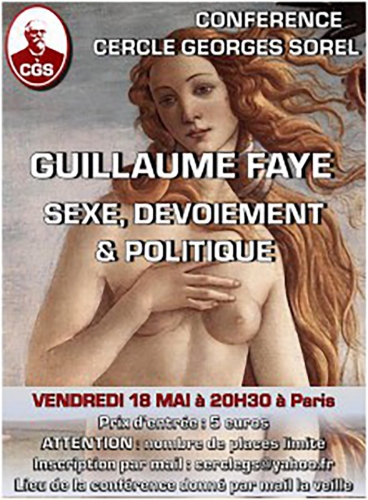 Selon Pierre Vial et Robert Steuckers, les deux ruptures successives d’avec le GRECE l’ont traumatisé -.il n’a jamais abordé le sujet avec moi, par pudeur ? – son caractère impulsif peut l’avoir amené à blesser certaines personnes dans la fougue de ses réactions, mais il en prenait conscience et il le regrettait rapidement. Il est devenu alors un garçon fragile et vulnérable qu’on aurait dû protéger et non pas accabler.
Selon Pierre Vial et Robert Steuckers, les deux ruptures successives d’avec le GRECE l’ont traumatisé -.il n’a jamais abordé le sujet avec moi, par pudeur ? – son caractère impulsif peut l’avoir amené à blesser certaines personnes dans la fougue de ses réactions, mais il en prenait conscience et il le regrettait rapidement. Il est devenu alors un garçon fragile et vulnérable qu’on aurait dû protéger et non pas accabler.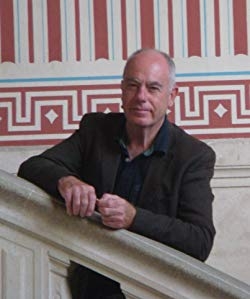 Pierre-Émile Blairon
Pierre-Émile Blairon